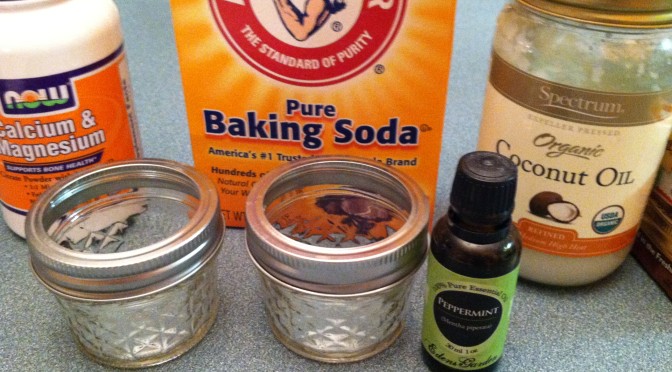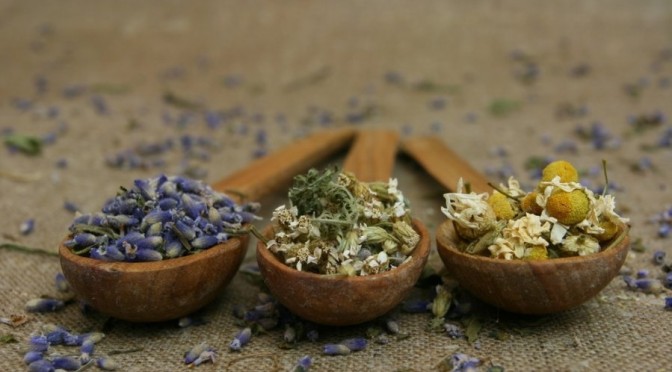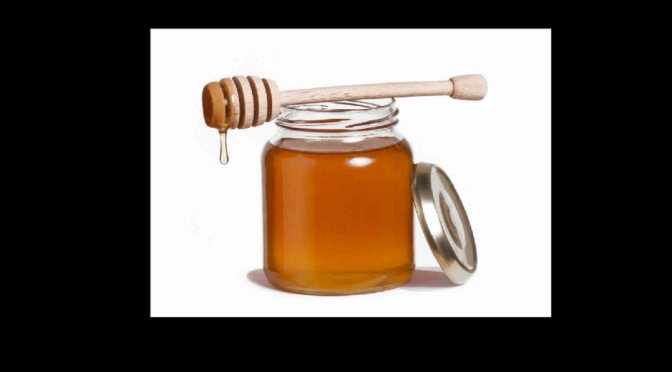From Mrs. Cog's Corner
The content on this page is for discussion purposes relating to health and well being only and is not intended to be medical advice. Links and sources provided are for informational purposes and do not represent an endorsement of a person, product or treatment.
How do we avoid fluoride in our toothpaste? Is there an alternative that may help your teeth to be healthier or even re-mineralized?
Many are currently making their own toothpaste in order to a.) know where the ingredients came from b.) provide their household with a low cost healthy alternative to big brands and c.) add properties to the paste that is not included in store bought brands.
If you're going to make your own toothpaste, coconut oil is the perfect place to start. Coconut oil is a key ingredient in homemade toothpastes because it's a powerful, natural antibacterial and antifungal - so it works to kill harmful bacteria in your mouth while you brush. Coconut oil is excellent for your gums and brushing with it regularly can eliminate bleeding, sore gums. The oil kills the bacteria that are responsible for gingivitis - and if you have gingivitis, you might want to massage some coconut oil into your gums regularly, in addition to using it in your toothpaste. http://www.naturalnews.com/029140_toothpaste_fluoride.html
Clinical Study: Restorative treatments by the remineralizing and conventional toothpastes significantly increased the hardness of the acid soft drink-weakened enamel by 12.1% and 7.3%, respectively. Both toothpastes were effective in inhibiting damage due to acid soft drink exposure, but the remineralizing toothpaste was more effective in hardening intact and decalcified enamel than the conventional toothpaste (p < 0.05). http://www.ncbi.nlm.nih.gov/pubmed/10686854
The most surprising change in my teeth, however, was that they are no longer sensitive to cold! For as long as I can remember, biting in to anything cold (or even thinking of it!) made me shutter and hurt my front teeth. A few weeks ago when we made homemade ice cream, I noticed that I could eat it without my teeth hurting at all! I have never been able to do this at any point I can remember! http://wellnessmama.com/2500/homemade-remineralizing-toothpaste-recipe/
Before you go jump off a bridge, realize that these ingredients would be enough to make toothpaste for the entire family for years on end (with the possible exception of the calcium carbonate). Now, considering that we spend several dollars per tube of toothpaste for the “natural” stuff, I was willing to give this a shot, especially since we already had a few of the ingredients at home. http://rethinksurvival.com/posts/how-to-make-homemade-remineralizing-toothpaste/
Clinical Study: Toothpaste also contains a significant quantity of Al (Aluminum). http://www.ncbi.nlm.nih.gov/pubmed/9092078
Clinical Study: Some herbal toothpaste formulations studied in our experiments, appear to be equally effective as the fluoride dental formulations and it can be used as an alternative to conventional formulations for individuals who have an interest in naturally-based products. http://www.ncbi.nlm.nih.gov/pubmed/23569933
It is often recommended that you mix 1:1 baking soda and salt in a small container and dip your wet toothbrush in that and brush. Then just rinse with water. OR, you can create a little rinse of ½ t. of baking soda and ½ t. of salt in water, dip your brush in that as a less abrasive concoction and also rinse your mouth with it. http://seasonedcitizenprepper.com/oral-health-and-baking-soda/
Natural Medicine
From Mrs. Cog's Corner
The content on this page is for discussion purposes relating to health and well being only and is not intended to be medical advice. Links and sources provided are for informational purposes and do not represent an endorsement of a person, product or treatment.
Questioning everything...
Nature has a world of answers. We just need to ask better questions.
So I question... if a doctor is FAR more likely to kill me than a criminal... if avoidable modern medical "mistakes" are now the third leading cause of death in the USA... if the typical doctor has little or no medical training in the area of nutrition... why in the world would I even want to depend upon Western medicine unless I was in need of emergency trauma care?
Just as our health and wellness compels me to try to know the sources of our food and water so I can be assured of its quality and effects, I apply the same standards to medicine in our home. I highly encourage anyone who is interested in being responsible for the care of their own health, and in relying less on so-called "normal" protocols, to read and investigate the amazing and simple alternatives that exist right under our noses.
This article is one of my attempts to distiguish the difference between and natural, holistic approach and a conventional medical approach. A natural, holistic approach is about supplying nutrition to the body so that the body can heal itself. Our current health care system is one of disease management that is governed by expensive pharmaceutical drugs and insurance companies. (Note that I still don’t understand why these drugs are so expensive.) Our current health care system will never be affordable based on this model. http://www.lewrockwell.com/2014/01/margaret-durst/disease-management-or-natural-healing
Find natural remedies, home remedies, and alternative therapies for top health concerns and health conditions. http://www.prevention.com/mind-body/natural-remedies
Alternative Medicine News http://www.sciencedaily.com/news/health_medicine/alternative_medicine/
Holistic medicine's name comes from the Greek word halos, which means whole, and refers to a practice of medicine which treats the body, mind and spirit. Holistic medicine differs from traditional Western medicine in terms of philosophy, diagnostic techniques and treatment options. Individuals taking charge of their own health care would do well to investigate both options. http://www.livestrong.com/article/104735-holistic-medicine-vs.-western-medicine/
Pharmaceutical companies have convinced people that side effects are just a normal part of medicine, when the fact is they should not be. True medicine works with the entire body. http://www.naturalnews.com/037495_western_medicine_alternative_healing.html
Herbs are one of my favorite things to grow, for cooking and for treating ailments. Many of them are perennials, so once you get herbs established you don’t have to worry about planting them year after year. And many herbs do quite well in partial shade, and are a great way to use those areas around your home which don’t get enough sunlight for sun-loving plants. http://newlifeonahomestead.com/2014/01/medicinal-herbs/
Honey
From Mrs. Cog's Corner
The content on this page is for discussion purposes relating to health and well being only and is not intended to be medical advice. Links and sources provided are for informational purposes and do not represent an endorsement of a person, product or treatment.
Honey has amazing healing powers and has been used for thousands of years as a tool in prevention and cures. It is important to distinguish between raw honey, processed honey and highly refined. Much controversy and many conflicting sources of information can be found on the internet and while I continue to research and learn more all the time, I have chosen to stick more closely to proven clinical studies on this topic. If indeed the debate is not whether or not honey has amazing healing capabilities but rather in what state, the results of tests meeting more stringent standards would seem to be the most reliable default in this case.
The USDA requires honey from small bee-keepers be minimally processed before being sold and often that is what we have found in small farmer's markets and local produce vendors near us. Raw honey is available from various sellers on the internet.
76% of grocery store “honey” had no pollen in it! When buying from drug stores like Walgreens, Rite Aid, and CVS, the failure rate went as high as 100%! The good news is that every sample bought from farmers’ markets, co-ops, and natural food stores was loaded with pollen. So, as with olive oil, the real stuff is out there. You just have to make sure it was sourced from a single farm or small co-op of farms. http://www.foodrenegade.com/your-honey-isnt-honey/
Research article: Antibacterial Efficacy of Raw and Processed Honey http://www.ncbi.nlm.nih.gov/pmc/articles/PMC3042689/pdf/BTRI2011-917505.pdf (Please note that in this case, processed means minimally, not "ultra refined" as many mass commercial honey products are.)
Sweet news for those looking for new antibiotics: A new research published in the July 2010 print edition of the FASEB Journal explains for the first time how honey kills bacteria. Specifically, the research shows that bees make a protein that they add to the honey, called defensin-1, which could one day be used to treat burns and skin infections and to develop new drugs that could combat antibiotic-resistant infections. http://www.sciencedaily.com/releases/2010/06/100630111037.htm
"Manuka and other honeys have been known to have wound healing and anti-bacterial properties for some time. But the way in which they act is still not known. If we can discover exactly how manuka honey inhibits MRSA it could be used more frequently as a first-line treatment for infections with bacteria that are resistant to many currently available antibiotics". http://www.medicalnewstoday.com/articles/264667.php
The identification of the main components responsible for the antibacterial activity of honey and the mechanism of action underlying this effect bring new knowledge to the field that will greatly contribute to understand the mechanisms by which honey compounds lead to bacterial growth inhibition and bacterial death. http://www.frontiersin.org/Journal/10.3389/fmicb.2012.00398/full
Published results of more than 450 clinical studies pertaining to antibacterial properties of honey: http://www.ncbi.nlm.nih.gov/pubmed/?term=honey+antibacterial
The results show that the pollen frequently has been filtered out of products labeled “honey.” The removal of the flower pollen would make the nectar flunk the quality standards set by most of the world’s food safety agencies. It’s not considered honey without pollen in it. Furthermore, this is often done so that one can not tell where it came from, even what region. Furthermore it’s heavily cut and diluted with cheap corn syrup and artificial sweeteners. Buy organic real honey from farms or sellers you know. Here’s some tips to figure out if it’s real or not. http://www.survivalmagazine.org/homesteading/real-or-fake-honey-how-to-tell-the-difference/
Honey is effective because it is filled with healthful polyphenols, or antioxidants, she said. These include the phenolic acids, caffeic acid, p-coumaric acid and ellagic acid, as well as many flavonoids. “Several studies have demonstrated a correlation between the non-peroxide antimicrobial and antioxidant activities of honey and the presence of honey phenolics,” she added. A large number of laboratory and limited clinical studies have confirmed the broad-spectrum antibacterial, antifungal and antiviral properties of honey, according to Meschwitz. http://preventdisease.com/news/14/031814_Honey-Perfect-Antibiotic-Solving-Problem-of-Antibiotic-Resistance.shtml
Lead author Susan M. Meschwitz, Ph.D., presented the findings at the 247th National Meeting of the American Chemical Society. She reports, "The unique property of honey lies in its ability to fight infection on multiple levels, making it more difficult for bacteria to develop resistance." Meschwitz said that honey uses a combination of weapons including polyphenols, hydrogen peroxide and an osmotic effect. Honey is practically an ambidextrous fighter, using multiple modalities to kill bacteria. http://www.naturalnews.com/044685_honey_natural_antibiotic_bacterial_resistance.html


